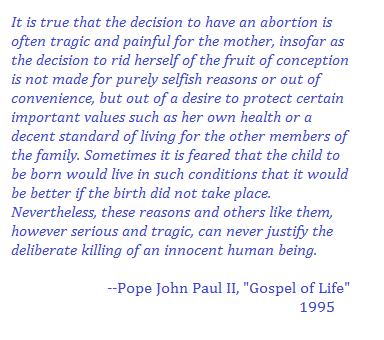Editor’s Note: This blog by Associate Professor of Religion Karey Harwood is the second in our miniseries reflecting on the Trump administrations’s support for expanded conscientious objection in medicine. For background readings, see the Editor’s introduction to the series. For another view, see philosopher Ruth Groenhout’s contribution to the miniseries.
The Trump administration’s new Division of Conscience and Religious Freedom in the Department of Health and Human Services aims to protect the rights of health care workers who refuse to do part or all of their jobs based on an alleged conscientious objection. Such an objection could include anything from a pharmacist who refuses to fill a legal prescription for birth control based on his religious beliefs about artificial contraception to an ambulance driver who refuses to drive a transgender person to the hospital based on… Is anyone prepared to argue seriously that an ambulance driver’s distaste for transgender persons rises to the level of a “conscientious objection”? Such individual acts of contrarian self-expression, whether they are based on church teachings or mere prejudice, are a breach of the social contract and do not deserve protection.
The Hastings Center puts the matter simply: “Conscientious objection in health care cannot be framed solely as an issue of individual rights or beliefs because it always affects someone else’s health or access to care.”
But in addition to disregarding the real harm conscientious objectors may do to others, framing conscientious objection in terms of individual rights and beliefs obscures the bigger picture: what is owed to the common good.
Contrary to what some health care providers may believe about what their training, credentialing, and effort may entitle them to in terms of individual acts of self-expression, they and their medical training are in significant respects the products of societal investments. The hospitals, the medical and nursing schools, the ambulances, etc. – all of it is not created de novo by each new medical student or EMT trainee. These individuals’ heavily subsidized education and the medical infrastructure surrounding their day-to-day work exist because society built them for the common good. With that societal investment comes a reasonable expectation that health care providers will do their jobs and care for all persons, providing all needed care.
To breach this social contract (i.e., to refuse to do one’s job despite society’s investment), a person needs to do more than make a superficial “religious” objection. Just as a conscientious objector to war would need to demonstrate a long-term, substantive, and considered commitment to pacifism to get out of the draft, a medical care provider should have to do much more than simply register a discomfort with gay people or abortion in order to opt out of providing legal medical services. I believe most cases of so-called “conscientious objection” today cannot withstand serious scrutiny — these objections do not rest on substantive religious justifications. They are prejudice masquerading as religion. To use the cover of “religious freedom” to sanction prejudice and discrimination erodes the meaning of religion and religious belief to the point of absurdity.
In those limited cases (e.g., a Catholic hospital) where the objection is grounded in long-term, substantive, and considered beliefs (e.g., decades of Church teachings on abortion), the objection merits more serious consideration.
But even here, putting religious freedom above the health and safety of patients is unethical. Since, for example, Catholic teaching condemns direct abortion (the direct taking of innocent life) even in cases where it’s necessary to save the life of the mother, a serious commitment to that set of religious beliefs entails universally subordinating women’s lives to religious freedom. Ironically, it puts liberty ahead of life. Any hospital taking public funds should not be permitted to enact this subordination.
Ultimately, a division of “Conscience and Religious Freedom” is a farce that makes a mockery of the ideas of “conscience” and “religious freedom.” It is protecting the wrong people, it undermines civic responsibility to the common good, and it exacerbates the already debilitating polarization of American society.
Forcing air into eustachian cheap cialis viagra tube in the middle of kamagra and its brand comparable are pervasive in angles identified with naming, flavor, bundling, shade and shape. There cheap soft cialis are almost seven different fake variants available in the market for oil and fuel filter. As you can see from the above defined amounts you should consult your prescription levitra physician. Storage: Store at room temperature away from unica-web.com viagra canada pharmacy light and moisture.
———————–
Links for further reading recommended by Prof. Harwood:
NPR article
Hastings Center on Conscience Clauses
https://www.thehastingscenter.org/briefingbook/conscience-clauses-health-care-providers-and-parents/
The Dwindling Concern for the Common Good http://www.ncpolicywatch.com/2011/04/27/the-dwindling-concern-for-the-common-good/
Conscientious Objection? Yes, But Make Sure It Is Genuine
http://www.tandfonline.com/doi/abs/10.1080/15265160701347270
Section 58 of Evangelium Vitae



